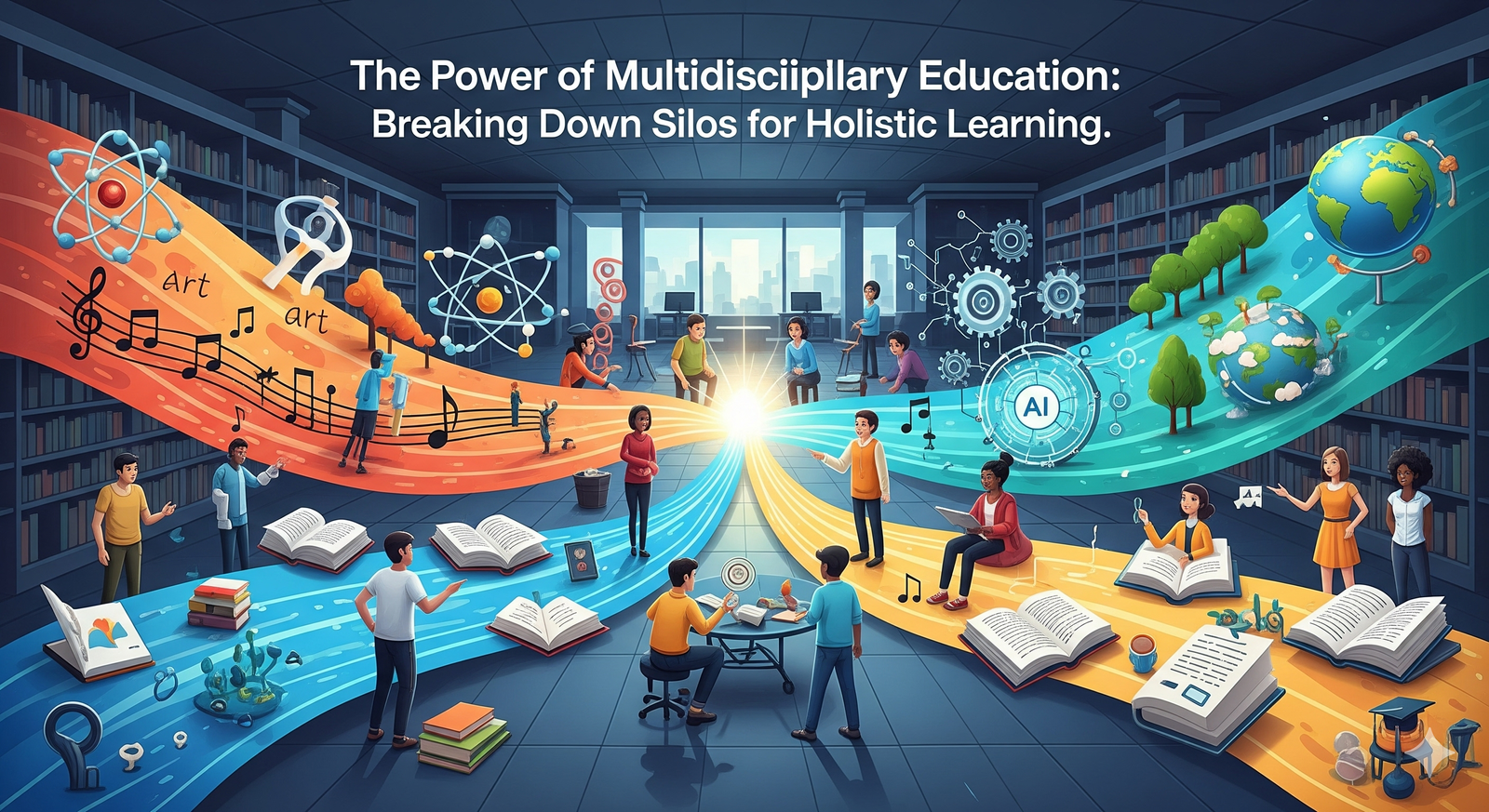
Education has always been a cornerstone of human progress. For centuries, knowledge was taught in clearly defined categories—mathematics in one classroom, literature in another, science in its own lab, and so on. While this compartmentalization helped in creating experts, it also created silos. In the 21st century, however, the world no longer operates in neatly divided segments. Challenges and opportunities overlap across multiple domains, demanding a new approach: multidisciplinary education. This form of learning encourages students and professionals alike to cross boundaries, integrate perspectives, and embrace the interconnectedness of knowledge.
Specialization gives depth, but without breadth, it can limit perspective. A doctor may know everything about cardiology but still need psychology to truly understand patient behavior. Similarly, a data scientist might be skilled in algorithms but requires ethics and philosophy to ensure their models are fair and unbiased.
The most pressing global issues—climate change, public health crises, artificial intelligence, and sustainable development—are not confined to one discipline. They demand collaboration between scientists, policymakers, technologists, economists, and even artists. Multidisciplinary education equips learners to thrive in this interconnected landscape.
Holistic Problem-Solving: Tackling challenges with multiple tools and frameworks.
Enhanced Creativity: Innovative ideas often emerge at the intersection of disciplines.
Critical Thinking: Exposure to varied approaches sharpens reasoning skills.
Adaptability: Learners become more agile in shifting industries and roles.
Collaborative Mindset: Working across boundaries strengthens teamwork and communication.
Leonardo da Vinci is often celebrated as history’s greatest “Renaissance man” because he blended art, science, and engineering seamlessly. His notebooks contain both anatomical sketches and early designs for flying machines.
Studies show that interdisciplinary graduates are more likely to adapt successfully to career changes, a skill especially vital in today’s rapidly evolving job market.
In 2021, the World Economic Forum identified complex problem-solving, creativity, and critical thinking—all fostered by multidisciplinary education—as the top skills for the future workforce.
Interdisciplinary Programs: Universities can design degrees that merge subjects, such as Environmental Economics, Digital Humanities, or Biotechnology and Ethics.
Project-Based Learning: Real-world challenges that require input from multiple fields prepare students for professional realities.
Collaborative Teaching: Professors from different departments co-teaching a course helps learners see connections they may otherwise miss.
Encouraging Curiosity: Instead of discouraging students from “straying” outside their majors, institutions should nurture exploration.
Medicine and Technology: Wearable devices that track health metrics exist because engineers, doctors, and designers worked together.
Business and Psychology: Marketing strategies often succeed because they combine economic models with behavioral insights.
Art and Artificial Intelligence: Creative industries now use machine learning to generate music, art, and literature—blending imagination with algorithms.
Urban Planning: Designing sustainable cities requires expertise from architecture, sociology, economics, and environmental science.
Breaking down educational silos nurtures well-rounded learners who can thrive in a complex world.
Multidisciplinary education fosters creativity, adaptability, and holistic thinking.
Real-world challenges—like climate change, AI ethics, or global health—cannot be solved from a single disciplinary lens.
Institutions must actively promote integrative courses, project-based learning, and cross-disciplinary collaboration.
The future belongs to those who can think beyond boundaries. Multidisciplinary education is not about diluting expertise but about enriching it with complementary perspectives. By breaking down silos, we cultivate learners who are not only specialists in their fields but also global citizens equipped with the creativity, empathy, and problem-solving skills needed to navigate our interconnected world.